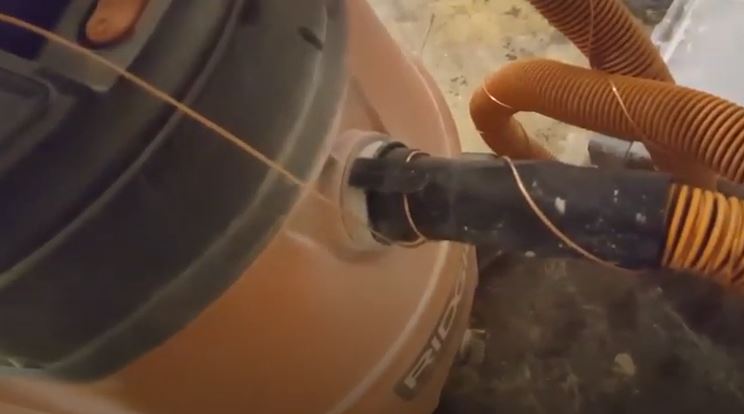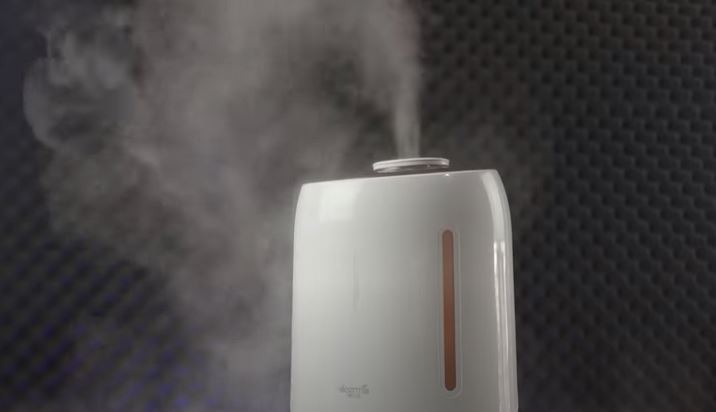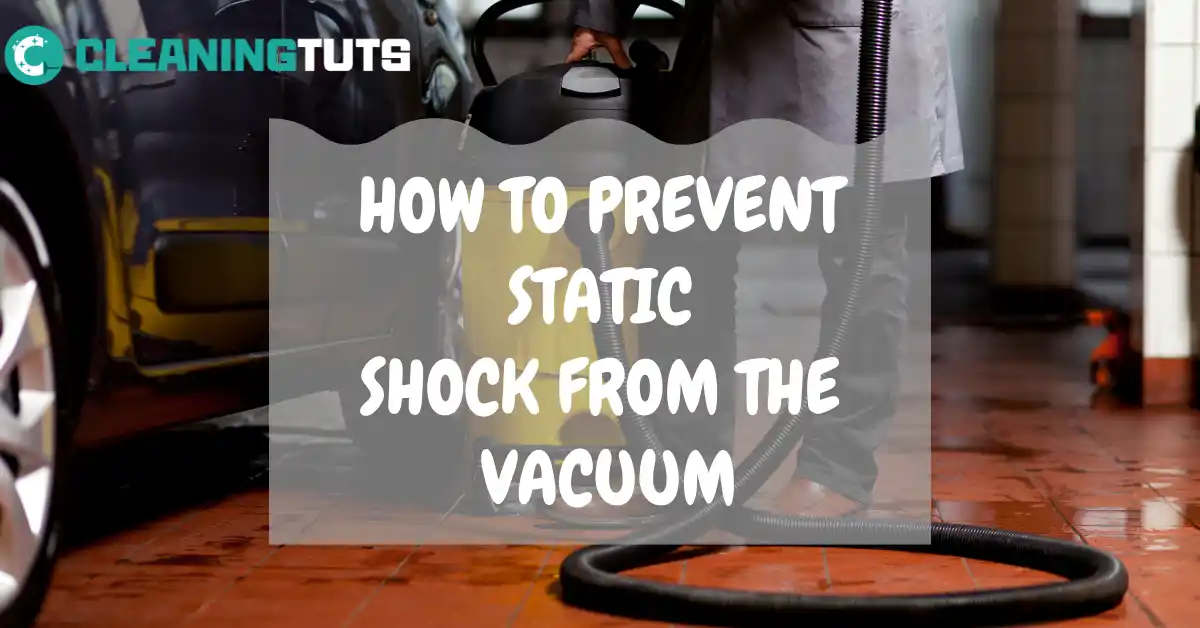How to Prevent Static Shock from the Vacuum
Vacuuming isn’t fun, so getting electrocuted in the process doesn’t exactly motivate you to clean up your house. This can become frustrating to the extent of not wanting to vacuum anymore. In this article, I’ll be giving you effective tips on how to prevent static shock from the vacuum as well as what causes it.
Tips to Stop Static Shock from Vacuum
There are two main ways to go about this. You can use copper wire on your cleaner or add humidity to your environment.
Let’s get into detail.
1. Using Copper to Stop Static Shocks in Your Vacuum

This works because copper is a great conductor, it acts as a good outlet for the electrons from your hose, so they don’t get to you. Instead, the static electricity goes through the copper wire to protect you from the shocks.
To do this, get a couple of feet of copper wire depending on the size of your vacuum and wrap it around the strategic places. Before fixing anything, the first thing you should do is ensure your vacuum is unplugged for safety purposes.
Next, unscrew the hose from the vacuum and wrap your copper wire around the vacuum hose where the cuffs should be. Then, screw the vacuum hose back on the cuff over the wire and run the remaining piece through the vacuum hose. Make sure there’s no object stuck inside vacuum hose while you are at it. The goal is to keep the wire inside where the friction magic happens. This will help reduce static buildup and create a smoother surface inside the hose, allowing for faster vacuuming techniques. Once the wire is in place, you can reattach the hose to the vacuum and test it out. You should notice an improvement in suction and overall performance, thanks to the enhanced airflow. With these simple modifications, you can optimize your vacuum for more efficient and effective cleaning.
If you continue getting shocks after this, consider adding more copper wire to see if it helps with the process.
2. Add Humidity to Your Environment

Low humidity makes the air very dry, creating a conducive environment for static electricity. While you may be completely unaware of the changes around you, you may feel a slight shock when touching things around the house.
Adding water in your home gives electrons another place to go instead of discharging on you. Note that water can’t enter the vacuum hose on its own unless the humidity level in your home is high.
You can use a humidifier to inject more moisture into the air to increase moisture circulation. Alternatively, you can use a heating system or a radiator; simply place a pot of water to heat up, and it will serve the same purpose as a humidifier. This is because you’ll get more moisture in your home as the water boils and evaporates.
Frequently Asked Questions
1. Can a vacuum cleaner electrocute you?
If you’re using your vacuum the correct way, you don’t stand a chance to get electrocuted. However, if your vacuum cleaner is damaged and has some exposed wires due to wear and tear, this could put you at risk of being electrocuted.
Another reason you could get electrocuted by a vacuum is using it in improper ways. For instance, vacuuming your porch when it’s full of water can be a big risk. This is against the safety measures that are listed in the manual.
2. Where do the static shocks in my hose come from?
The static shock in your vacuum cleaner is mostly coming from the vacuum hose. Over time, the hose comes into friction with items such as wood and concrete in your home. The inside of the hose pipe experiences the same friction as it sucks in debris.
This friction builds up negative charges, which don’t have an outlet. Since your body is positively charged, when you touch the hose, it discharges some of its negative charges to you. And that’s when you get that irritating shock.
Final Words
The first step of preventing static shock from the vacuum is understating the root cause. This may be low humidity in your house, in which case you can use a humidifier to add a little moisture to the air.
It can also be an error on the electrician’s part if this is a new house. In this case, you’ll need to check and correct the ungrounded electricity outlets in your home.
I hope you’ve learned how to prevent static shock from the vacuum and make vacuuming more comfortable. If you loved this article, check out our site for more vacuum maintenance hacks.

